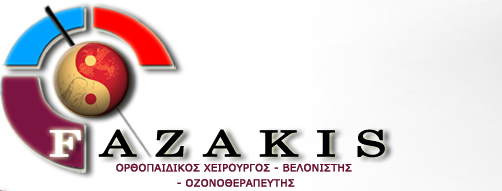Orthopaedics is the branch of medicine that studies and treats conditions involving the muscoskeletal system. The full term is Orthopaedic Surgery and Traumatology. There are over 1,500 Orthopaedics in Greece registered with the Greek Association for Orthopaedic Surgery and Traumatology, established in 1949.
Etymology of the word Orthopaedics
* How the word was created: This medical specialization was established in 1741 by the French Surgeon Nicolas Andry aimed to treat post war wounds and disabilities as well as the rehabilitation of children’s disabilities mainly after Poliomyelitis and neurological paralysis. Being a philhellene, as clearly stated in his book Nicolas Andry created the French word “orthopedie” derived from the Greek words ORTHON (standing) and PAIDION (child). It was wrongly presumed it came from the Greek word root, – πεδ- (ped) meaning something that has to do with supporting something steadily. The fact that in the French language – ae- does not exist and therefore -e- had to be used led to the wrong translation from French to Greek as “ορθοπεδικη” (orthopedics), ignoring what Nicolas Andry had written. Professor Theodoros Garofalidis wrote, “In the year 1741 the French professor, Nicolas Andry, created the word orthopaedics, which is formed from the Greek words ορθώς (orthos) and παιδίον (paidon). His book where this was explained was aimed at educators. It is clear that the word orthopedics (with an e) prevailed in Greece from 1898.
*How the word was changed: Until 1995 there was no particular issue with the way “orthopaedics” was spelled in Greek. It was spelled “orthopaedics” in dictionaries, books, leaflets, on signposts, etc. Books written by orthopaedics professors Theodoros Garofalidis, Georgios Hartofilakidis and Panagiotis Symeonidis where titled using the word “orthopaedics”. In foreign bibliography there were, and still are, two ways of spelling it, due to the fact that sometimes the French way of spelling is chosen instead of the Ancient Greek. In English the word “orthopaedics” is often used either with -e- or with -ae-. In British English –ae- is preferred whereas in American English –e- is preferred instead. In 1995 a question was rasied by foreign professors asking for the correct spelling of the word. Then the Greek professor Panagiotis Soukakos passed the question to the Greek Association of Orthopaedic Surgery and Traumatology as well as to three of the leading linguistic professors of Greece (Babiniotis, Petrounias and Christidis) They then concluded that -ae- is correct and not -e-, although both ways of writing should be considered correct. Finally, after voting within the Greek Association of Orthopaedic Surgery and Traumatology it was decided to use the term “orthopaedics” as the correct one.
Modern Subjects of Orthopaedics
Due to the rapid development of scientific research and technology, orthopaedics have gained a massive volume of knowledge. It is, along with Pathology, the field of Medicine that deals with almost the entire human body. Therefore, unofficially we can have the following subcategories of orthopaedics:
- Orthopaedic surgery of the spine (vertebrae)
- Orthopaedic surgery for children (child orthopaedics)
- Orthopaedic surgery of the hand (microsurgery)
- Orthopaedic surgery of the shoulder
- Orthopaedic surgery of the elbow
- Orthopaedic surgery of the hip
- Orthopaedic surgery of the knee
- Orthopaedic surgery of the ankle and foot
- Arthroscopic surgery
- Orthopaedics of metabolic conditions
- Orthopaedic neurology
- Orthopaedic surgery of musculoskeletal tumours
- Orthopaedic surgery with application of IT and robotics ( medical software)
- Orthopaedic technology implants, prosthetics and robotic exoskeleton
- Orthopaedic ergonomics for equipment, furniture, tools and structures.
